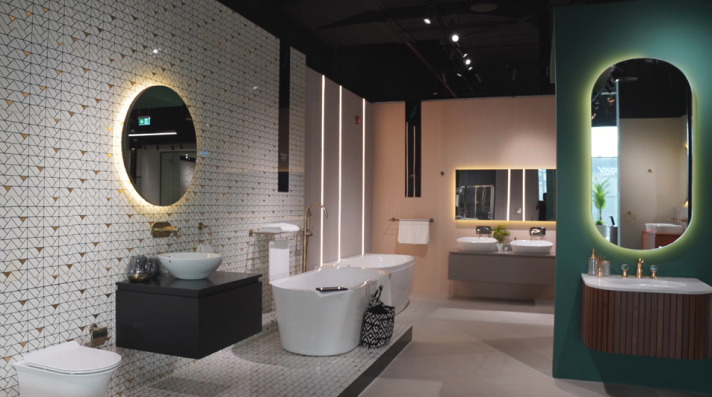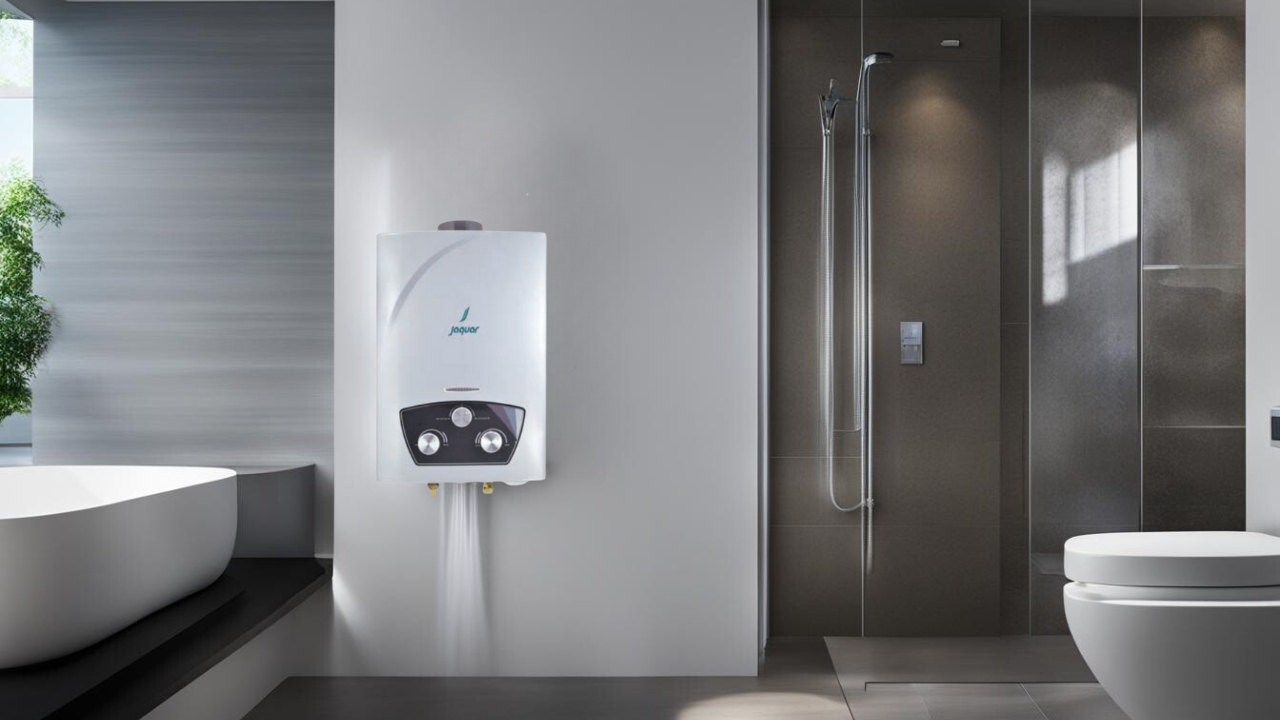Hard deposits resulting from the use of hard water affect the efficiency of water heaters, affect the energy rating of water heaters, and even shorten the life span of the water heater. In this article, you will learn what hard water is, the types of water heaters available and the appropriate for hard areas.
Understanding Hard Water and Its Impact
What is Hard Water?
Hard water is water which has a higher concentration of dissolved constituents, especially calcium and magnesium contents. As the water passes through soil and rocks, it gets these minerals in dissolved form. This type of water is found in regions with gypsum or limestone deposits. Despite the fact that hard water has no adverse effects on health, it causes a number of problems most especially for household appliances that use water.
Effects of Hard Water on Water Heaters
- Scale Accumulation: Scale buildup is one problem that is very much caused by the use of hard water. The scale can be described as a mineral deposit that appears as a white powder and accumulates on heating devices and water heaters. The same is used when heating bedewed layers. Such layers settle and attach themselves to the surfaces. This buildup has a number of adverse effects such as acting as an insulating material and therefore making it difficult for the heating elements to carry out their duties.
- Reduced Performance: Increased levels of scale mean great effort will be exerted by the heating elements in an effort to heat the water. This translates to a higher operating cost in terms of energy since work is required. It is worth noting too that the efficiency of the heater is bound to decline as time goes by since increasing energy would be used to achieve the same temperature.
- Decrease in Lifespan: The ever-present tension that is created by scale and corrosion is the suspect culprit in most water heater failures. Components may wear out faster needing repairs or replacement more often.
Types of Water Heaters for Hard Water Areas

Credits: Jaquar
Tankless Water Heaters
Tankless water heaters, also known as on-demand or instantaneous heaters, provide hot water only when needed. Unlike traditional storage water heaters, tankless models do not store hot water but heat it directly as it flows through the unit.
Advantages of Tankless Water Heaters:
- Energy Efficiency: Tankless heaters are more energy-efficient than traditional models because they only heat water when required. This eliminates standby heat loss, which occurs in tank-type heaters.
- Compact Size: These units are compact and can be installed in smaller spaces, making them ideal for homes with limited room.
- Endless Hot Water: As long as the unit is capable of handling the demand, tankless water heaters provide an endless supply of hot water.
Considerations:
- Initial Cost: Tankless heaters generally have a higher initial purchase and installation cost compared to traditional water heaters. However, the long-term savings on energy bills can offset this expense.
- Flow Rate Limitations: Tankless water heaters have a maximum flow rate, which can limit the number of outlets that can be used simultaneously. This might be an issue in larger households with high hot water demands.
Storage Water Heaters

Credits: Jaquar
Storage water heaters, also known as tank-type heaters, store a large volume of hot water in a tank. These units heat and maintain a reservoir of hot water, making it available on demand.
Advantages of Storage Water Heaters:
- High Capacity: Storage heaters are ideal for families with high hot water usage, as they can supply a large amount of hot water at once.
- Consistent Temperature: The tank maintains a constant temperature, ensuring that you have hot water available whenever you need it.
Considerations:
- Energy Consumption: Storage water heaters can be less energy-efficient due to heat loss from the tank. They continuously use energy to keep the water hot, even when not in use.
- Space Requirements: These heaters require more space for installation due to the size of the tank, which might be a drawback in smaller homes or apartments.
Heat Pump Water Heaters
Heat pump water heaters use electricity to move heat from the air or ground to heat the water. This method is highly efficient and can be a good option in hard water areas.
Advantages of Heat Pump Water Heaters:
- Energy Efficiency: Heat pump water heaters are known for their high energy efficiency, often reducing energy consumption by up to 50% compared to conventional heaters.
- Environmentally Friendly: They utilize renewable energy sources from the environment, making them a more eco-friendly option.
Considerations:
- Installation Cost: The initial cost of heat pump water heaters is typically higher than that of traditional models. However, the long-term savings on energy bills can make them a worthwhile investment.
- Climate Dependent: The efficiency of heat pump water heaters can be affected by the ambient temperature. They may perform less effectively in colder climates.
Features to Look for in Water Heaters for Hard Water Areas

Credits: Jaquar
Anti-Scale Technology
Anti-scale technology is designed to combat the effects of hard water. These systems use various methods to prevent or reduce scale buildup, extending the life of the water heater and maintaining its efficiency.
- Electromagnetic Systems: These systems use magnetic fields to alter the behavior of mineral crystals, preventing them from forming scale.
- Catalytic Systems: Catalytic systems use chemical reactions to prevent scale formation, often involving special filters or additives.
Corrosion-Resistant Materials
Water heaters made from corrosion-resistant materials are better equipped to handle the challenges posed by hard water. Look for heaters with tanks made from stainless steel or glass-lined steel, as these materials are less susceptible to rust and corrosion.
Self-Cleaning Features
Some modern water heaters come with self-cleaning features that help remove scale and mineral deposits automatically. These systems periodically flush the tank or use chemical additives to keep the unit clean and functioning efficiently.
High-Quality Heating Elements
High-quality heating elements are essential for maintaining performance in hard water areas. Look for heaters with elements coated with materials such as Incoloy or titanium. These coatings help resist scale buildup and corrosion, ensuring longer-lasting performance.
Recommendations for the Best Water Heaters for Hard Water Areas

Credits: Jaquar
Jaquar Water Heaters
When it comes to selecting a water heater for hard water areas, Jaquar stands out as a top choice. Their water heaters are specifically designed to address the challenges of hard water and offer a range of advanced features that ensure durability and efficiency.
Top Features of Jaquar Water Heaters:
- Dual Overheating Protection: Jaquar water heaters are equipped with a dual overheating protection mechanism. This feature automatically cuts off the power if the primary thermostat fails, ensuring safety and preventing damage.
- Multi-Function Safety Valve: The multi-function safety valve in Jaquar heaters adapts to varying water pressures and temperatures. It protects against pressure and temperature fluctuations, making it ideal for areas with inconsistent water pressure.
- Earth Leakage Circuit Brake: Jaquar’s heaters include an Earth Leakage Circuit Brake, which prevents electric shocks by stabilizing voltage and controlling imbalances in the internal mechanism.
- Superior Quality Materials: Jaquar uses high-quality glass-lined tanks and advanced heating elements to resist rust and scale buildup. This ensures the heater remains durable and performs efficiently over time.
- High-Density Insulation: The CFC-free insulation in Jaquar heaters minimizes heat loss, improving energy efficiency and reducing electricity bills.
- Digital Features: Jaquar’s water heaters come with modern digital features, including a cordless remote, full digital display, and an on/off timer. These features offer convenience and ease of use.
How to Choose the Right Jaquar Water Heater for Your Home

Credits: Jaquar
Consider Your Household’s Needs
Evaluate your family's hot water consumption to choose a water heater that meets your needs. For larger families with high hot water demands, a storage water heater might be more suitable. For smaller households, a tankless model may be sufficient.
Check Energy Efficiency Ratings
Look for Jaquar water heaters with high energy efficiency ratings. These models are designed to save on energy costs and make a more environmentally friendly choice.
Evaluate Warranty and Customer Service
Jaquar offers comprehensive warranties and exceptional customer service. Ensure you understand the warranty terms and take advantage of Jaquar’s maintenance services to keep your heater in optimal condition.
Conclusion
A thorough understanding of factors such as efficiency, durability, and special hard-water-based/water usage-dependent features helps in selecting the best water heaters for hard water usage areas. In this regard, Jaquar also has superb water heaters which are equipped with advanced technology and premium materials that would guarantee durability and optimal efficiency.
In addition to being energy efficient, Jaquar water heaters come with features that include quenched dual overheating protection, multi-function safety valves, and the use of resistant materials. Due to the high standards and spirit of servicing clients that characterize Jaquar Company, their heaters are worth buying.
Comfort should not be hampered by the effects of hard water. Take a look at the variety offered by Jaquar water heaters and choose the one which is best for you. To know how effective the best water heaters are, visit your nearest dealer of Jaquar products today and feel the difference. In your day-to-day life, use Jaquar bathroom solutions and enjoy the warmth of the shower at any time of the day.


